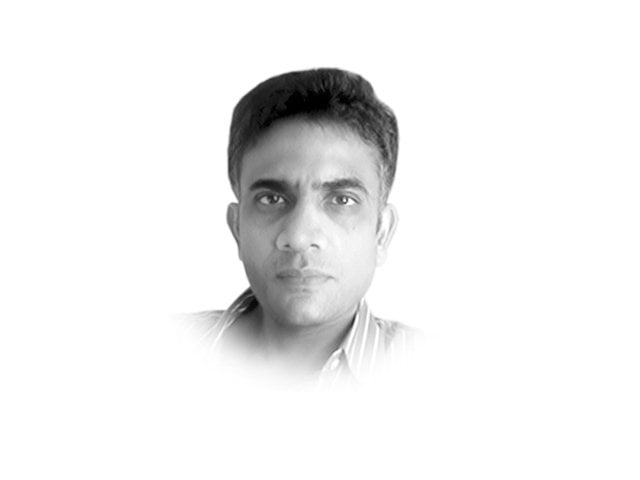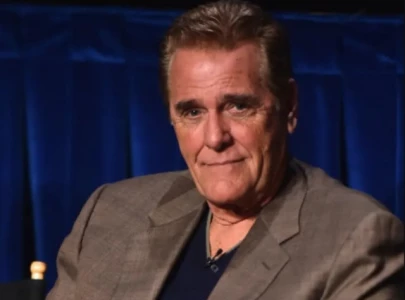
Violence in Pakistan was very low till 2003, when only 189 Pakistanis were killed, of whom 140 were civilians.
The year before that, early 2002, former president Pervez Musharraf banned the Lashkar-e-Taiba and Jaish-e-Muhammad, and the violence in India began to dip, as I wrote last week. In Pakistan the reverse happened and that is what the general was referring to. In 2004, the number of deaths was 863, in 2005 it was 648. After that, during Musharraf’s last years in office, began a phase when violence seemed to get out of hand. From 1,471 (in 2006) to 3,598 (2007) to 6,715 (2008) to 11,704 (2009).
This was the climax and after this, it fell, but not drastically. Deaths owing to terrorism were 7,435 in 2010 and then 6,303 (2011), 6,211 (2012) and 5,379 (2013). This year, so far the number of those killed in terrorist violence is 2,137 and it seems to be more or less the same sort of pattern as Pakistan has seen since 2011.
I had these figures at hand and told the general that the violence seemed to have dropped since its 2009 peak. Though much more slowly, Pakistan’s numbers seemed to suggest a tapering off of the violence in the same way as India.

No, said the general, 2009 was an aberration. That year the military went into South Waziristan to clean up and took over the area completely. The casualties rose, the general said, because of this. Though the figures show that relatively few people died directly in the action by the military, it is possible that the operation resulted in increased attacks in Pakistani cities because the militants were hitting back. The subsequent ‘fall’ in the number of casualties the following year should not be seen as an improvement so much as going back to the situation of 2008.
The military’s launching of an operation in North Waziristan this week may unfortunately bring violence in the coming months back to peak levels, even if this is temporary.
The area is thought to be tougher to capture, especially given the presence of the most hardened of the al Qaeda fighters, meaning those from Central Asia who have nowhere else to go. The attacks in Pakistan’s urban areas are also likely to go up if the pattern of 2009 is to be repeated.
The ISI general said that the thinking in India appeared to them to be that of satisfaction at the situation Pakistan found itself in. “Let them stew in their own juice” and “you created the problem, now you suffer the consequences” were some of the phrases he used to describe what he thought the Indian attitude was.
He was quite clear, however, that there was no going back in the action against the militants because the army thought of them unequivocally as the enemy. In fact, that was the attitude of all those former representatives of the Pakistani state whom I had the chance to speak to — from diplomats once considered to be hardline and hawkish, to politicians to generals, all were agreed that the enemy was the extremists. There was no talk at all of good and bad Taliban. The Pakistanis I heard said that there were limitations of the state with respect to the LeT and Hafiz Saeed in particular, but this must not be seen as encouraging the group.
Published in The Express Tribune, June 24th, 2014.
Like Opinion & Editorial on Facebook, follow @ETOpEd on Twitter to receive all updates on all our daily pieces.
COMMENTS (14)
Comments are moderated and generally will be posted if they are on-topic and not abusive.
For more information, please see our Comments FAQ












@3rdRockFromTheSun: The once liberal Pakistani society? The elite may have been more westernised and consumed alcohol and dressed in western clothes. But liberalism as in tolerance of the other, democratic traditions have never been hallmarks of the Pakistani society where sweets were distributed in 1977 when an elected leader was removed, where an elected overnment introduced a lw criminalizing Ahmadis in 1974, where Bengalis were alienated and broke away due to imposition of Urdu and unwillingness to allow a duly elected Bengali leader from serving as PM of the united Pakistan, where objective resolution was passed in 1954 and where between 1950 and 1954 Hindus were systematicaly driven out of Krachi. I point out Karachi because it was not part of a state which was partitioned.
About 3 years ago I heard Sheikh Rasheed saying in a TV talk show that "Agencies" pay Rs 25 lakhs or even more to write just one article for them. It would look believable, credible, unbiased and objective if someone else writes rather than them saying the same. He said that he knows it because he was the Information Minister of Pakistan.
Hillary Clinton in her recent interview with Barkha Dutt talked about US reward of $10 million on Hafiz Saeed. This is what Barkha Dutt (NDTV) asked and Hillary Clinton said:
NDTV: You know when we met last, when you were in India, you spoke about how you had actually announced this 10 million dollar bounty for information leading to the arrest of one of the architects of 26/11, Hafiz Saeed of Lashkar-e-Taiba, he's still out there. He's still out there, he holds rallies, nobody can touch him. Why do you think that someone as powerful as yourself was not able to do more about a group, like the Lakshar-e-Taiba?
Hillary Clinton: Because I think the very strong conviction in the military and the intelligence and other elements within the society is that they're not a threat to us, namely Pakistan, they're a threat to India. And by doing what they're doing to turn away from LeT and others, they continue to cause India to have to take them seriously or have to worry about Pakistan. Those days should be over.
Link for the full transcript of the full interview:
http://www.ndtv.com/article/india/full-transcript-hillary-clinton-to-ndtv-on-iraq-pm-modi-and-plans-for-2016-545348
Connect these and you have the full answer.
I wonder if this conversation was a veiled attempt to extract something similar to the Kerry-Lugar bill from India for the "many sacrifices" made by Pakistan.
@skc: The point of the article is to expect casualties due to terrorism to go up during the operation.
The proof of the pudding, lies in the eating ! Words are cheap, actions count.
Quote from the article - “Let them stew in their own juice” and “you created the problem, now you suffer the consequences” were some of the phrases he used to describe what he thought the Indian attitude was. unquote.
truth of the matter is, the Pakistani leadership must recognize that it can not win this war against terrorism without the cooperation of its neighbours, Afghanistan and India ... and this cooperation will not be forthcoming unless and until Pakistan takes its neighbours into confidence ... selective cherry picking approach will not go unnoticed and is bound to fail ...And the point of this article is ???
Aakarbhai: Is the point of this article, just reproducing the conversation you had with a few people in Pakistan. No analysis? Where is the journalist in you?
India does not care about good or bad Taliban. The good Taliban hurt Afghanistan and the bad ones Pakistan and neither have to do with India. India cares about LeT and JeM and Pakistan definitely has not one after them. They openly collect hides after Eid and though supposedly pros ribed, leader of LeT can openly address a crowd of thousands and call for jihad aainst India nt in some hinterland but in Lahore. So to say that Pakistan has changed its attitude is simply not credile. The beheading in Jan 2013 and the ambush that killed 5 soldiers in 2013 August are examples that the mindset has ot changed. It is just that with imprved investments in intelligence post 26/11 , ghe frequency of these attacks has reduced.
In fact post 2003, the Karachi project was put into effect where the decision was to attack India's economic targets instead of keeping the fight limited to target. Hence post 2005 we saw attacks in Bangalore, Hyderabad, Ahmedabad, Mumbai (2006. - serial train bombings), Delhi, Jaipur etc. Oh and 26/11 also happened well after 2003 and there is enough evidence of ISI involvement based on evidence in Indian courts and American courts plus pone transcripts and much more. Pretty lazy article just reporting on a conversation without any research or getting a different side.
Reads good.
If Pakistan remains steadfast in Zarb-e-Azb it can make some major U turns both in terms of policy and geography and society.
And if Pakistan succeeds, we can expect better days in the entire South Asia.
Let me start with a small story. Once a king was told by his confidants that the occurrence of diseases are highest in the province which has maximum number of doctors. The king immediately ordered to execute all the doctors of that province not realizing that the large number of doctors was actually the effect and not the cause.
It's very easy to confuse the cause with effect and vice versa. The decrease in terrorist activity in India could well be the effect of increased violence in Pakistan and not the cause.
"The Pakistanis I heard said that there were limitations of the state with respect to the LeT and Hafiz Saeed in particular, but this must not be seen as encouraging the group" Mr.Aakar Ahmed Patel - why didn't you ask him what these "limitations" were or were you satisfied with his answer???
"The Pakistanis I heard said that there were limitations of the state with respect to the LeT and Hafiz Saeed in particular, but this must not be seen as encouraging the group" Mr.Aakar Ahmed Patel - why didn't you ask him what these "limitations" were or were you satisfied with his answer???
A lrage part of the Pakistani populace believe that the TTP - which is causing most of the violence; is funded by India. So if the terrorist attacks on India have decreased; do you really think the India would not want that, be upset with Pakistan and would urge those presumable stooges (ie the TTP) to increase the attacks on Pakistanis?
On the other hand, the gen saab believes that as Pakistan reduced the freedom given to its proxies to carry out attacks in India; India has been encouraging its presumable proxies to attack civilians in Pakistan?
Maybe the real truth is that the said 'non-state' actors have simply realized that they are today in a more powerful position than their creators and protectors; and realized that they could overthrow and take over the power from those who created and nurtured them. And when you add the growth of the fundamentalist and rigid outlook in the once liberal Pakistani society; all fingers point to an inside job. Do not try and pin it on others!